Dwain Hebda | Photos Courtesy of MeatEater & Justin Rotton
There may be bigger man caves than Clay Newcomb’s but it’d be hard to find many better than the one he calls his office, in a deep valley near West Fork. That is where the creator and host of the popular “Bear Grease” podcast has his own little den of utter manliness, crammed with everything a guy with a hankering for the outdoors might ever need.
Some of the menagerie are the tools of his trade – books on various manly subjects and his recording gear, for starters. The rest is an amalgam of items harvested, inherited and found.
The space is small, cluttered and haphazardly kept. An altogether fitting representation of Newcomb’s endlessly curious mind that has led to him sharing his compelling voice on “Bear Grease,” a celebration of fundamental things often overlooked by modern society. Newcomb has garnered a loyal following by celebrating the values, traditions and stories of rural America and the wilderness that surrounds those communities.
“The threads of ‘Bear Grease’ are always rural America,” he said. “There’s usually some element of hunting, but the podcast is not about hunting. Basically anything that I’m interested in that has rural culture, outdoors, science and nature, I can turn into a ‘Bear Grease’ podcast. It’s stories about rural people, it’s about outlaws and turkey poachers and people telling their stories.

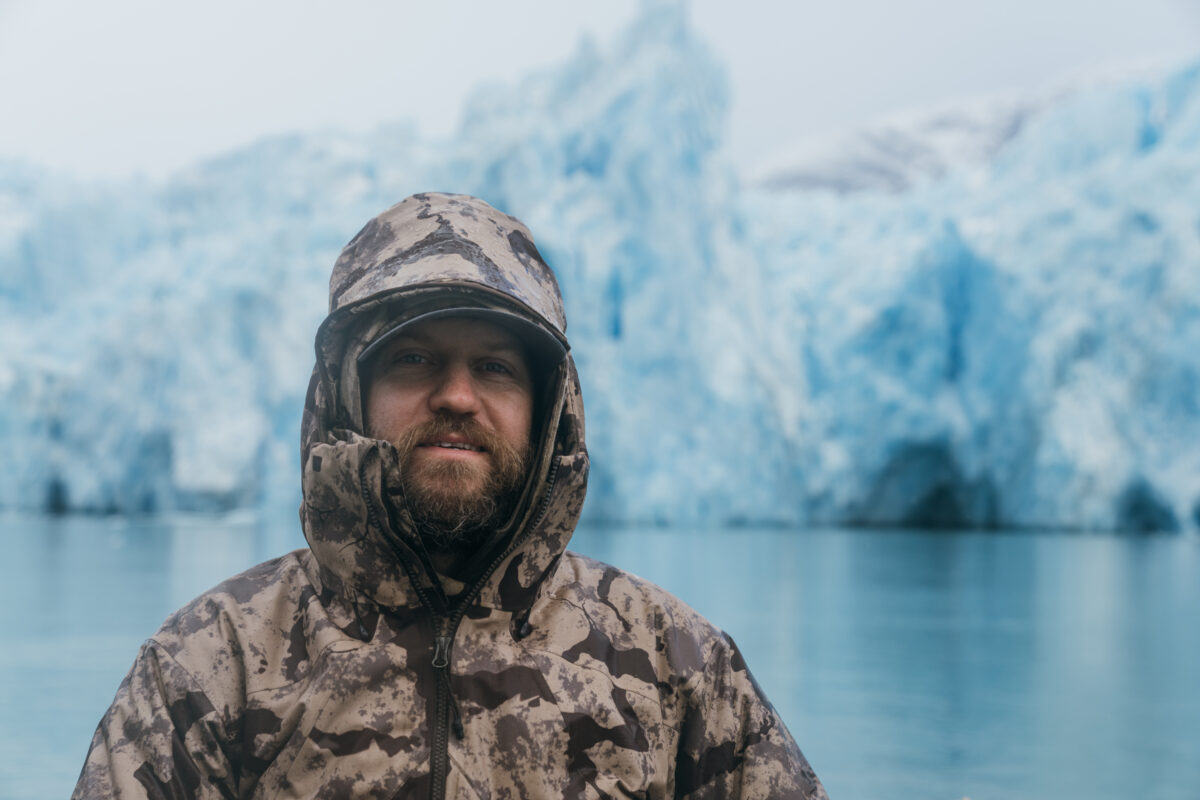
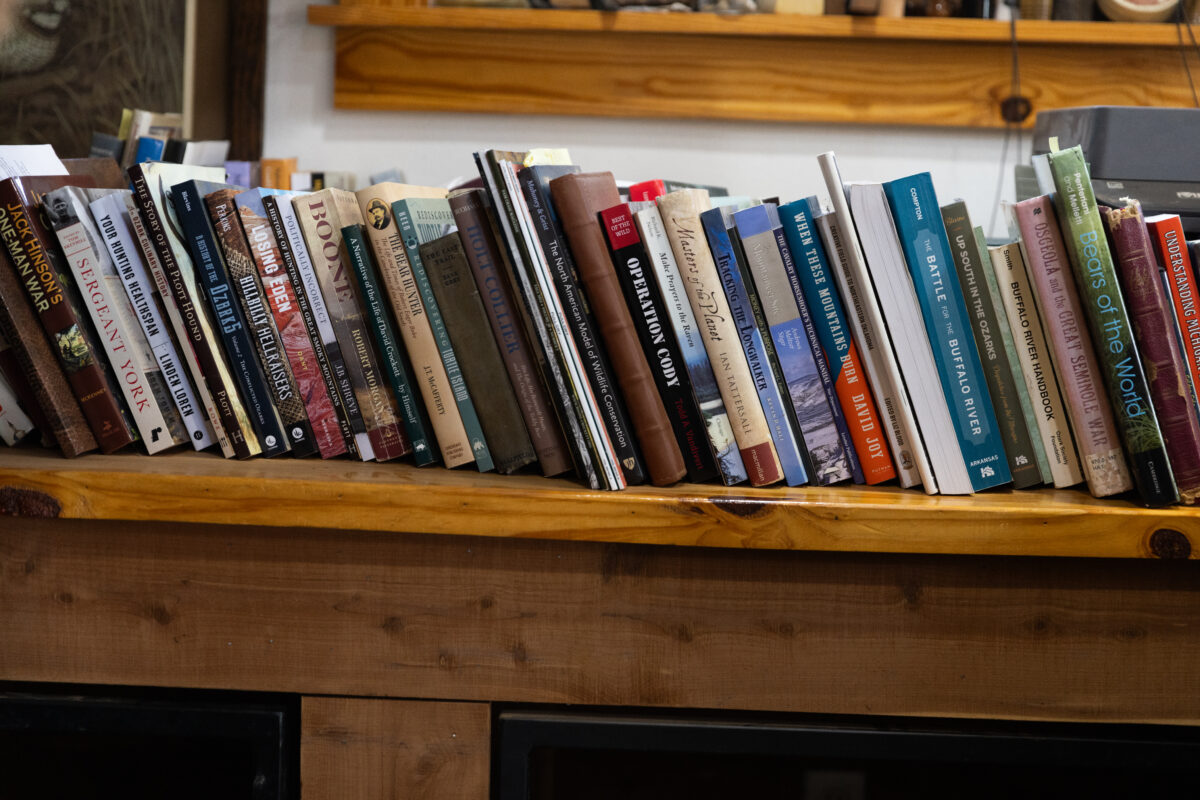
“I’m really on a journey of learning something and then taking someone else on that journey. We actually say it right in our tagline: ‘Bear Grease’ is about things relevant but forgotten.”
His journey, deeply rooted in his upbringing, reflects a profound love for the land and a commitment to preserving the heritage of rural life. Newcomb, who grew up in Mena, can trace his family’s Arkansas roots back to the 1820s. His father, Gary, spent his working years as a banker and delighted in the living folklore that walked through his door every day. Invariably, he would bring home highlighted conversations with his kids.
“[Dad] dressed in a suit and tie every day to go to work, and when he would come home and tell me stories from his world, he wouldn’t tell me stories about insurance agents or dentists or doctors or lawyers,” Newcomb said. “He told me stories about the people who would come in to borrow $400 so that they could go catfishing for a month.
“One of his customers would kill a big buck and he’d come home and get me and be like, ‘Clay, we’re going to see Dale today. He killed a big buck,’ and we’d go out to his house and it would be some person in rural Polk County. Dad treated them like kings; he really did. And I was just fascinated.”
NO ‘NORMAL’ JOBS
NEWCOMB GRADUATED HIGH SCHOOL with no clear picture of what he was going to do with his life, except to shuffle off to college in the hopes of figuring it out. He landed at the University of Arkansas, where he majored in environmental soil and water science, graduating in 2005. To this day, he can’t pinpoint exactly why he chose that major.
“It ended up coming back to help me, because it had quite a bit of biology and science to it, which I do use in my storytelling today,” he said, “but I’ve never used that degree a day in my life.”
Married in 2000 and the father of four, Newcomb had mouths to feed. On the advice of his father, he endeavored to always work for himself, a goal that led him to form his own landscaping company.
“It was basically a means to a lifestyle that I wanted to live,” he said. “I did it so that I wouldn’t have a boss and so that I could raise my family and, as I always used to say, when the white oak leaves turned maroon in the fall, I could be hunting. I just didn’t want the constraints of a normal job.”
The landscaping gig lasted for eight years during which time another opportunity presented itself. In 2013, Newcomb bought the niche Bear Hunting magazine, for which he wrote extensively and got his first taste of podcasting, producing content of a how-to nature. Eight years into that, the phone rang with outdoors media juggernaut MeatEater on the other end.
“MeatEater is a multimedia company for hunting and conservation,” Newcomb said. “They have a big YouTube channel; they have a publishing arm (and) a suite of podcasts. They have a show on Netflix.
“When I got a call from them, totally out of the blue, and they said, ‘Hey, would you be intereste in working for MeatEater?’ — to me that was like playing Division II basketball and the Lakers call,” Newcomb said. “It was a lifechanging moment.”
DISCOVERING THE HOOK
The transition from discussing hunting and tracking techniques to a broader platform of topics took a little adjustment. Newcomb credits MeatEater founder Steve Rinella for helping him find his stride.
“Being a good storyteller is a craft where you don’t start off being really proficient at it,” he said. “I think you have to get better at finding where the story is. Steve has been a big influence.
“He told me, ‘Clay, whatever you do, you have to be passionate about it. You can’t fake passion’.”
Rinella has other, more pointed commentary, which isn’t as poetic but proved to be equally instructive in Newcomb’s early development.
“Steve called me one time, early on, and said, ‘Your Daniel Boone podcast sucks. You buried the hook.’ I didn’t even know what that meant,” Newcomb said. “He said, ‘You talked eight minutes before you even told us anything of what Daniel Boone did and who he was. People would’ve had to listen for eight minutes before they had any clue of where you were going and what you were doing.’”
The sharp advice caused Newcomb to reengineer his podcasts.

“In today’s world, with as much media as we have and as many options as people have, man, you gotta hook ’em. They’ll turn it off in a minute if it’s not interesting,” he said.
Newcomb ditched the academic delivery he thought would play well and just spoke on what he saw as the most interesting and salient points. He also learned to trust his instincts on subject matter, understanding that enthusiasm is contagious to the listener. If he talked about things he found compelling, it would come through in his delivery and often intrigue the listener to listen to the end.
With that, Newcomb’s subject matters exploded. His many exploits include podcasts on Osceola, the great Seminole warrior, modern-day Arkansas outlaws, the backstory of Plott hounds and gas station taxidermy specimens. The show is consistently ranked No. 2 in iTunes’ Wilderness podcast category.
The show notes say he goes “deep with hunters, biologists, anthropologists and hillbillies” to tell “stories that reveal the incredible value of life lived close to the land.” While the name of the show sounds like an episode, it isn’t; but a jar of actual bear grease has found its place in his office’s hall of curiosities.
“The cool thing about working for MeatEater is that all I have to do is wake up and think about this podcast,” he said. “I credit the company for allowing me to do it and giving me the freedom to test things out. All they ever told me was ‘Go make this thing the absolute best that you can make it.’ That’s a real gift, you know? I run with that as much as I can.”
TRUST AND AUTHENTICITY
Along the way, Newcomb has amassed more behind-the-scenes stories than could be produced, experiences that served to hone his craft dealing with subjects and subject matter. On a series about the history of the Buffalo River and the way some landowners were treated to wrest them from their land, for example, showed him what people would talk about and what would get him the cold shoulder. Private property rights, he quickly learned, are something that families take very seriously.
“That whole [Newton County/Buffalo River topics] was probably one of the hardest episodes I ever did for getting people to talk,” he said. “These people had such history there and some of them were still really embittered over the government taking land. I came over there and was like, ‘Hey, I’m on your side,’ but they didn’t know that. A lot of people had told ’em that before.
“It goes back to if you really want to interview people, you’ve really gotta respect people, you have to gain their trust.”
While some of Newcomb’s favorite episodes have been rooted in Arkansas, the Natural State actually makes up a small percentage of the stories he shares with his audience and his family at home.
“I think I’m a lot like my dad in that way; I come home and tell [the kids] stories about people,” he said. “That actually has been the way a couple of series started. I’m thinking of one in particular I was telling them about, and my daughter, River, was like, ‘Dad, that’s a ‘Bear Grease’ (episode).’ I was like, ‘You know what, I think you’re right’.”
The show also spawned an addendum podcast, “Bear Grease: Render,” in which Newcomb brings topics to a roundtable of a few friends, including his dad. Such organic patter, paired with Newcomb’s undeniable authenticity, has gained him a sizable audience, particularly after podcaster extraordinaire Joe Rogan talked about “Bear Grease” on his show. As a result, he is often surprised at the level of recognition and acclaim he gets at events promoted by MeatEater, which he finds gratifying but also something he holds as a bit of a cautionary tale.
“I never expected for people to respond to it the way they did. It’s been kind of a surprise in my life, really,” he said. “At the same time, I think the biggest challenge with anybody that has success is to maintain the original authenticity that they had through the whole thing, which is hard, you know. When people start telling you how good you are, it screws you up, it really does.
“I mean, the fact people like it and that I’m doing something that people enjoy, I get affirmation from that and it’s fantastic. I love that. But I also know that it’ll kill you if you start believing in it too much.”
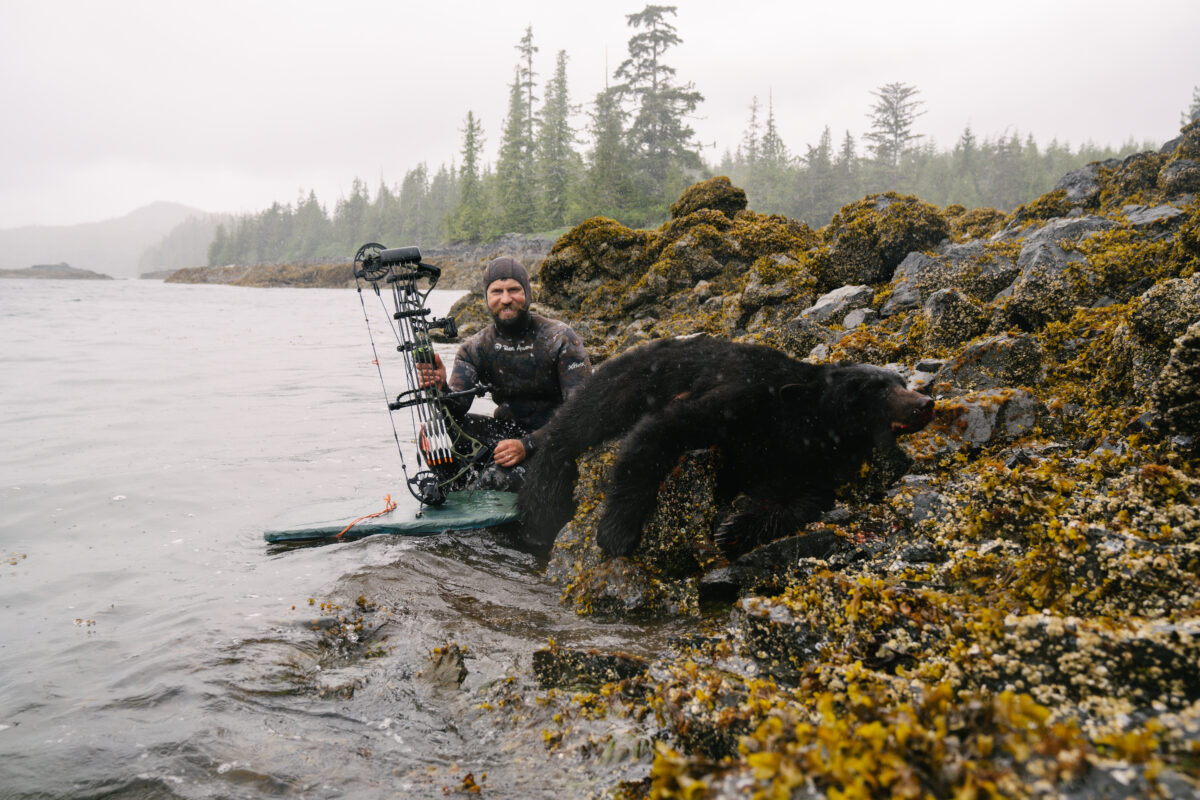
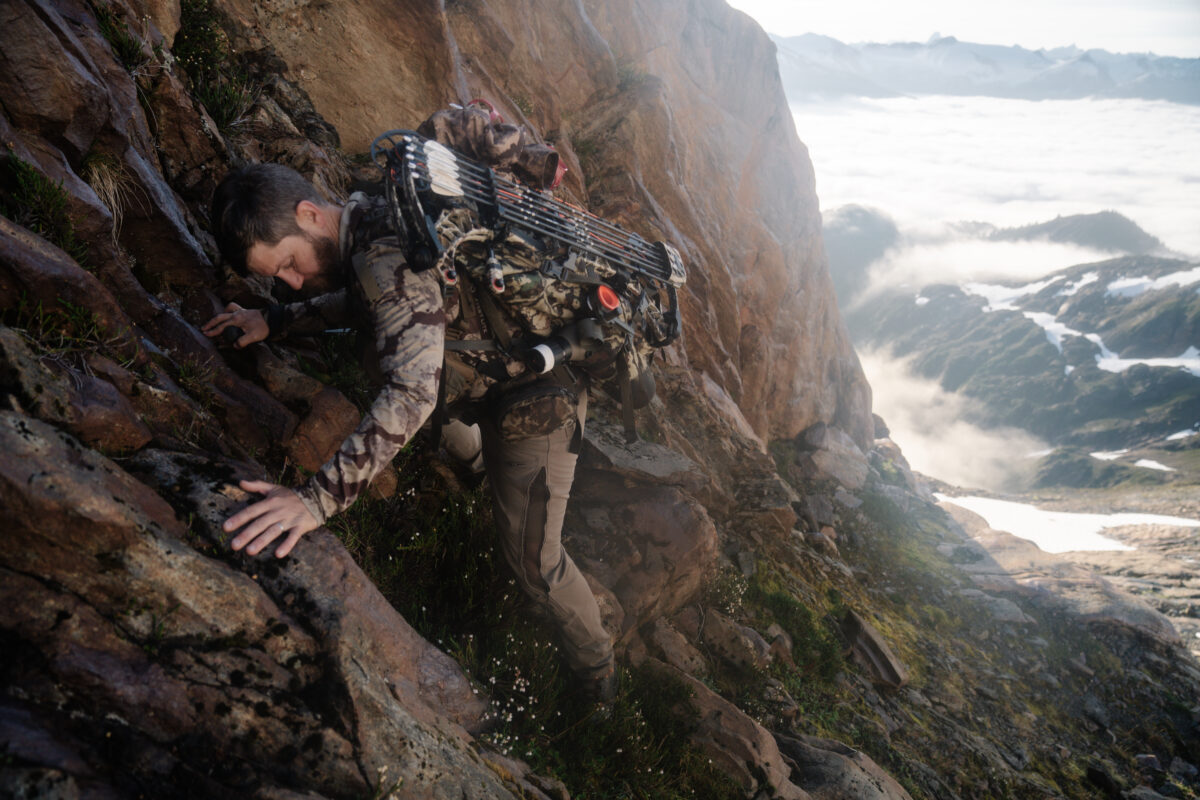
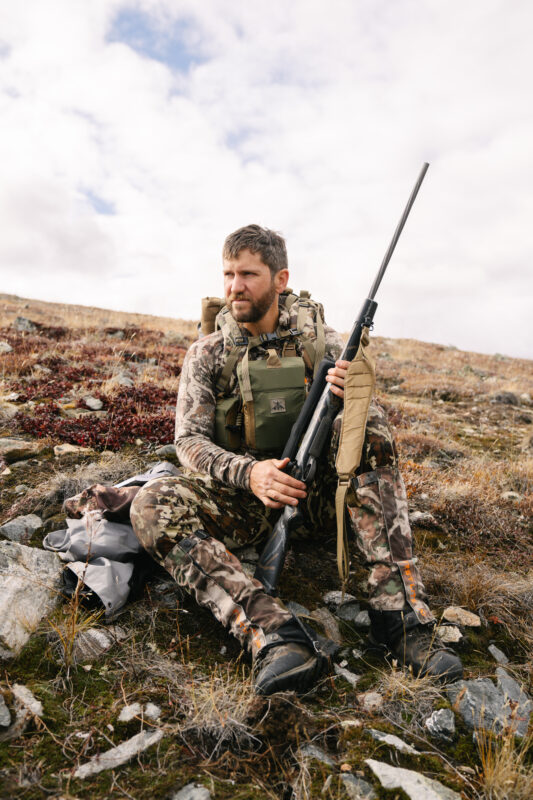
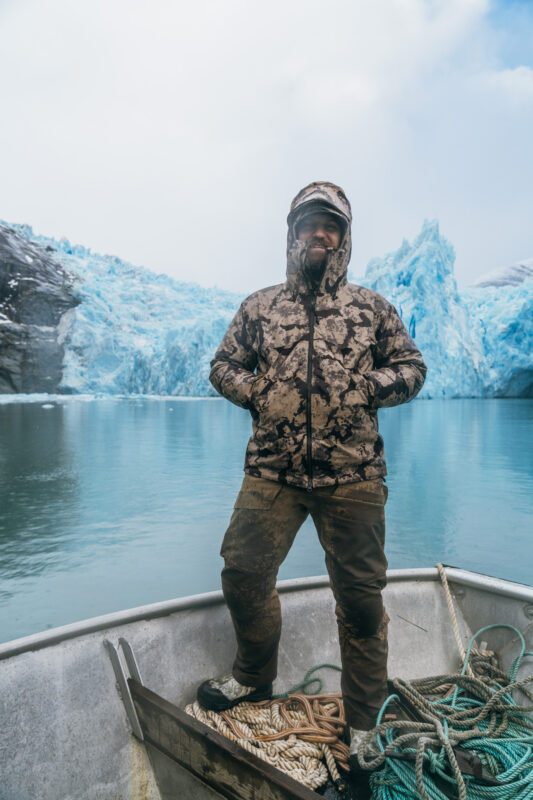
AMERICAN BACKWOODSMAN
Looking around Newcomb’s home, one sees a dream that has come true. Just outside the door of his stand-alone office, his two beloved mules graze and beyond that, a well-used deer target stands sentry, ready for archery practice. Tiny handprints from yesteryear, each with a child’s name under them, dimple the poured concrete steps yonder.
He’s also working on a book project with Penguin Random House on the American black bear, due out in 2026, a project for which he is deeply excited. At 45 years old, he’s got a lot more stories in him and the energy and curiosity for telling them, curating the cultural touchpoints he considers too important not to preserve.
“I would never in a million years introduce myself as a podcaster. I think that’s ridiculous,” he said. “I am a hunter at heart, I really am, and all the people I love and respect and most of the people the show talks about are hunters on some level. We have these deep tentacles into America, going back to Native Americans, going back to frontiersmen.
“The way I think about things and a core motivation for what I do is seeing that society is quickly moving away from a certain way of life. There’s got to be a place in our culture for rural America. And when I hone that down to a finer point, I would say America’s got to leave a place for what we used to call ourselves, what Daniel Boone called himself, a backwoodsman. To me, if you’re gonna tell a story about America, golly, it better have a backwoodsman in it or it’s not true.”
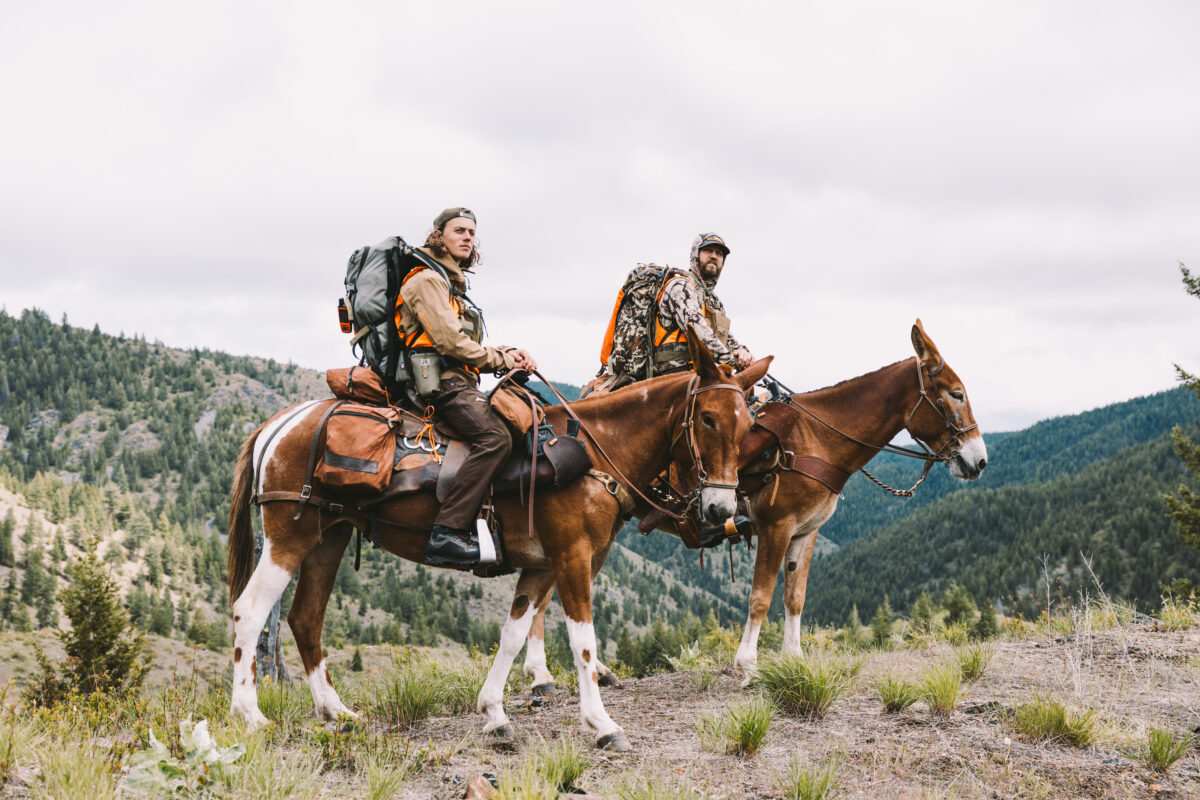
Read more from Issue 135 of Front Porch here or check out the digital issue below!